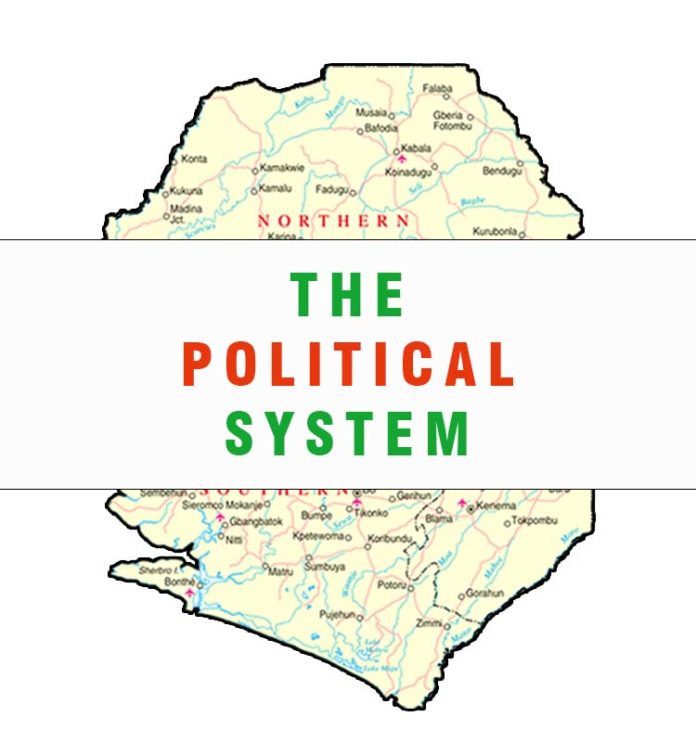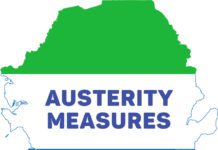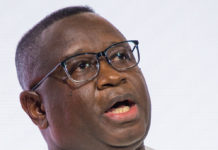by Mahmud Tim Kargbo
Fundamental to any consideration of citizen engagement in policymaking and the design of public services is the recognition that the citizens in a democracy have both rights and duties, and that democratic governance provides opportunities for citizens to participate actively in shaping their country. Such participation is effected in multiple ways and at various levels; from informal local and community settings, through incorporated entities, NGOs and peak bodies, to such key institutions as legislatures, the courts and the public service.
I am torn because I believe at one level no political outcome defines us. Sierra Leone, for all its profound flaws and hypocrisies throughout our history, is equally marked by its ability to self-correct and to potentially open its doors to the greatest talent from within to experiment, build and engage in Sierra Leone in deeply positive ways. One trip to Kroo Bay, Tombo, Kanikay, Bommeh or Muwharf or meeting with the massively poor people anywhere in the country tells me where the future lies. How I love re-watching Law and Order episodes with you guys in social positions of trust because it is a reminder of the depth of our system and rule of law with the imperfect goal of protecting justice.
At the same time, we have unleashed something significant this day in getting a democratically elected government whose excesses must be checked at every step. We have signalled to the world much that not only is disconcerting but trivialises the very things upon which other nations have garnered respect. We have, for the first time in my lifetime, a set of majority rulers that talk about “self-interest using the pretext of political party loyalty ” instead of “national interest” and there is no rallying of our sense of what we also share in common as a culture in striving for positive things nationally. How I hope that the political speeches of our rulers are something they meant, but their actions have been clear to date otherwise. Among our jobs is to be fearless in calling out the excesses we know their behaviour has led to additional massive poverty in the lives of the already suffering majority in so many parts of the country and throughout history.
The current increase of essential commodities under the watch of the current government without the participation of the citizens is to a large extent a direct way of isolating nationals in having their own say on issues that will affect their lives. Ironically, the government said it is primarily concerned with how the development of public policy might benefit from thoroughgoing engagement with citizens and other groups. From their actions, it draws genuine doubts on the recent public policy literature and on commentary and case studies, to describe the cultural and procedural changes that might be needed if the government is to realise its vision of collaborative, democratically-legitimised policymaking and service design
Democracy in Sierra Leone legally is said to be socially and culturally distinctive, developing traditions, conventions and structures that reflect the values and habits of the citizens. In his philosophical context, political scientist Graham Maddox has expressed the ‘idea of the democratic polity suited to the realities of the modern world’ in the following terms:
First, democracy should rest on a constitutional order, by which the power of any particular government of the day is limited to appropriate spheres of action.
Second, it should have a ‘responsible’ executive which, though limited to appropriate spheres of action and to a definite term of office, is nevertheless sufficiently strong to fulfil all the functions of government and to help adjust the social order to the needs of the time.
Third, the executive government should be counterbalanced by a constitutional opposition, to probe, question and help the community control the power of government.
Fourth, all its political institutions, such as the legislature, the government and bureaucracy, the courts and all the statutory bodies of the ‘public sector’, should conduct their procedures according to the traditional ideals of democracy—in particular, justice, liberty, equality and community.
And fifth, the whole political structure should rest on a pluralistic, participatory society, which maintains a vigorous group life.
These five features together cover the main themes of modern democratic literature. For us to judge the current Sierra Leone Bio led government as ‘democratic’, right-minded nationals suggest here that all five features must be found together, as a kind of ‘syndrome’ to apply to any political system
Within the broad scope of such a democracy, public policy constantly evolves to manage social, economic and environmental affairs, to respond to the needs, preferences and desires of citizens, and to steer or nudge them in directions that are regarded as conducive to the nation’s general wellbeing. It is a complex and fluid endeavour that is really meant for true leaders not the majority of our current pretenders. The majority of our current politicians in Sierra Leone must understand that we shape our country through public policy. This public policy is made not only by politicians but by thousands of public servants and the tens of thousands of women and men who petition the President, Parliamentarians and Ministers for not living up to their state obligations, who join interest groups, who demonstrate in the streets, comment through the media or represent unions, corporations and community movements. All have a stake in public policy. The entire community is affected by public policy and our current government officials need to quickly understand this simple, but straightforward fact.
In countries where those occupying social positions of trust are true servants not masters like ours, the theory and practice of public administration are increasingly concerned with placing the citizen at the centre of policymakers’ considerations, not just as a target, but also as an agent. To that end, public servants are being exhorted to collaborate, not merely consult; to reach out, not merely respond. This means engaging with people who are increasingly well-educated, attuned to their rights as citizens and voters, who have ready access to information and broad exposure to the voices of opinion leaders, experts and advocates.
This is not to deny the challenges of engaging with the marginalised or disaffected citizens and groups—a thorough consideration of which is beyond the scope of this article. The purpose here is to acknowledge the growing expectations of citizens to be more effectively involved in policymaking and service design, and to explore the responsibilities and capacities of our current politicians to initiate and facilitate such engagement to alleviate further suffering in the lives of the suffering majority who they’ve already made extremely poor due to their poor leadership qualities.
Given that the language of choice and customisation permeates the consumer world of goods and services that citizens inhabit, such expectations increasingly frame their view about the content and delivery of public services. They want to have a say in how solutions are developed and services delivered beyond the general preferences they express when endorsing a party’s platform and electing Presidential and Parliamentary representatives to pursue their interests and concerns through the executive and legislature.
The hard, but uncomfortable truth is, the hike in prices of essential commodities under the present Bio led government, continue to prevent the poor that form the bulk of Sierra Leone’s population from accessing such essential commodities. This means the Bio led government completely failed to examine the implications of citizen-centric ideals for the processes and structures of government agencies, for the attributes, skill sets and dispositions of public servants, and for the corruption culture of the majority in social positions of trust. It further failed to consider other jurisdictions’ experiences with citizen-focused approaches, it failed to take a closer look at the notion of ‘co-production’ as an exemplary exercise in citizen engagement in policymaking and the design and delivery of services
It’s imperative for the government of Bio, in turn, to recognise that they need more direct participation by citizens in order to govern well— to ensure stability, to facilitate people’s wellbeing and to manage environmental, health, security and energy issues into the future. The government should realise that they must harness the ideas, knowledge, wisdom and skills of the non-government sector—business, academia, the professions, and the voluntary organisation’s not only their praise singing journalists, non-governmental organisations, but even those that truly stand for the rights of the people. Failure to engage will waste resources and curtail opportunities.



